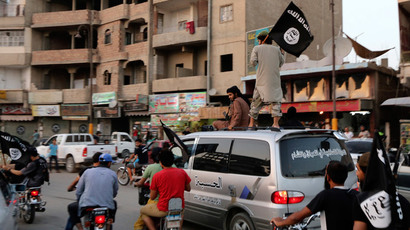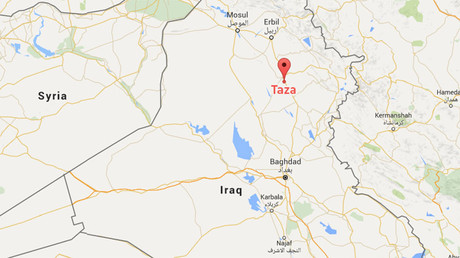“The University of Mosul is the best Daesh [Islamic State, formerly ISIS/ISIL] research center in the world,” Iraq’s top explosives officer Gen. Hatem Magsosi told The Wall Street Journal. “Trainees go to Raqqa [Syria], then to Mosul University to use the existing facilities.”
When the facility was seized by ISIS back in 2014, Iraqi officials reported to UN that some 40 kilos of uranium compounds kept there apparently fell into jihadists’ hands.
“Terrorist groups have seized control of nuclear material at the sites that came out of the control of the state,” Iraq’s UN ambassador wrote at the time, adding that such materials “can be used in manufacturing weapons of mass destruction.”
However, the atomic watchdog IAEA said the materials were “low grade” and did not pose any significant security risk, somewhat downplaying the nuclear threat concerns. According to military officials, terrorists are using the well-equipped lab to produce “conventional” explosives and suicide vests, as well as chemical weapons, and peroxide-based bombs.
The lab is well-stocked and has dramatically boosted the terror group’s ability to wage attacks in Iraq, Magsosi told the newspaper. He added that once foreign trainees leave the lab, they return to their home countries with enough skills to make bombs like the ones used in the Paris and Brussels attacks.
Mosul fell into ISIS hands in the summer of 2014, and by March 2015 dozens of jihadists’ scientists and engineers had established their base at the university’s chemistry lab. People familiar with the university said that units were set up for the specific purpose of studying chemical explosives, weapons, and suicide bomb construction.
It is not clear how much damage the US-led coalition operating in Iraq has inflicted on the facility which is well-known to have been under ISIS control for almost two years. The university campus was struck on March 19, according to Col. Steve Warren, a spokesman for the US military in Iraq, without clarifying if it was the first or yet another one in a series of airstrikes on the facility.
“We do know that Daesh [IS] has used some of those buildings for military purposes, and we bombed them,” Warren told the publication, adding that the coalition will continue to strike such facilities if they are uncovered.
In mid-March, Warren acknowledged the US military was aware that “there was a series of chemistry departments over there” and “presumably” some of it was still “useful”, however could not confirm that the terrorists were “assembling chemical weapons there.”
Washington is aware of the reports concerning Islamic State using the campus to produce chemical weapons, US State Department’s Elizabeth Trudeau told RT’s Gayane Chichakyan at a news briefing on Friday. She added that the US is concerned about the use of chemical weapons by the terrorists in both Iraq and Syria, and stressed that the US will continue “to work with partners to mitigate this threat.”
“The coalition has conducted targeted strikes against suspected [Islamic State] chemical weapons facilities including [those] around Mosul. We’ll continue to do that as targets are identified,” Trudeau said, at the same time refusing to give any comment concerning the seizure of uranium.
Iraq’s second-largest city is a strategic center of the self-proclaimed ISIS caliphate, along with the Syrian city of Raqqa. Last week, the Iraqi government announced an operation to retake Mosul from the terrorists. However, recapturing the city will be no easy feat.
According to the Pentagon, it will take between eight and 12 Iraqi brigades – more than 20,000 troops – to gain control of Mosul. Last month, Marine Lt. Gen. Vincent Stewart, director of the US Defense Intelligence Agency, testified at a congressional hearing that recapturing the city is still about a year away.
Source Article from https://www.rt.com/news/338086-isis-chemi%D1%81al-lab-mosul/?utm_source=rss&utm_medium=rss&utm_campaign=RSS
Related posts:
Views: 0
 RSS Feed
RSS Feed

















 April 2nd, 2016
April 2nd, 2016  Awake Goy
Awake Goy 

 Posted in
Posted in  Tags:
Tags: 
















